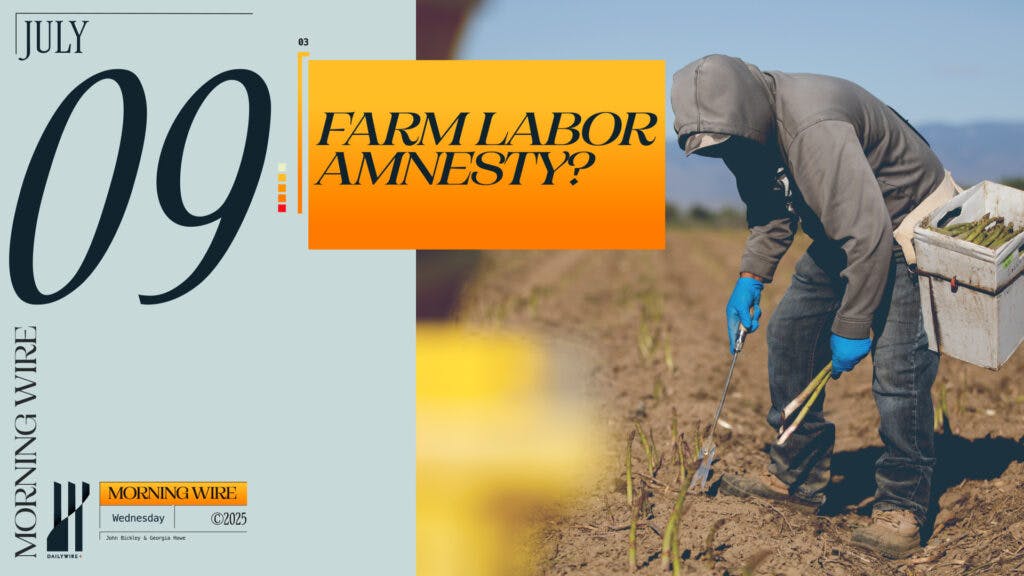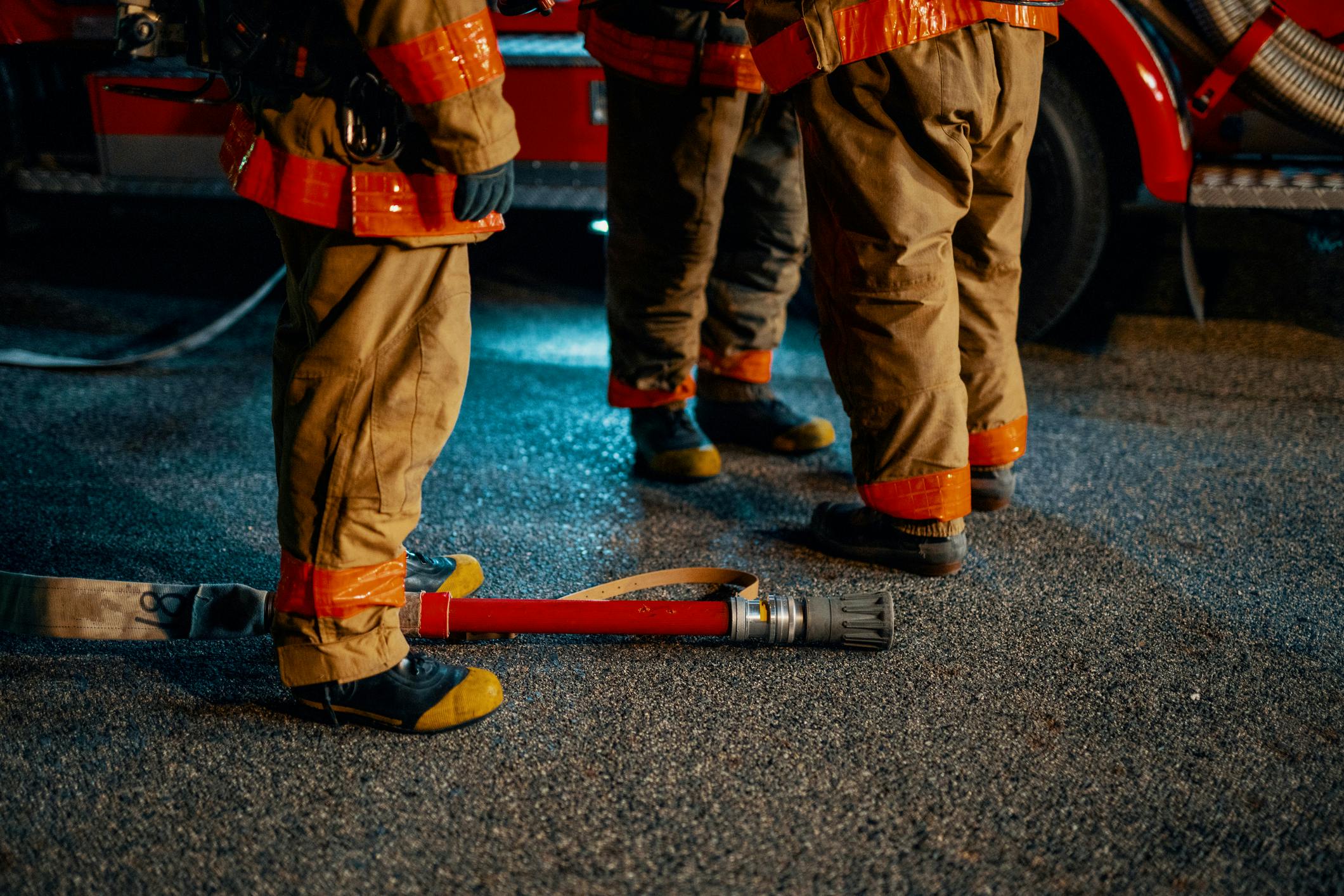Morning Brief: Trump Says No Amnesty For Illegals & Texas Flood Fallout

President Donald Trump fields questions on tariffs, Ukraine, and Jeffrey Epstein during his sixth cabinet meeting, fallout continues from the Central Texas floods, and the Trump administration rejects amnesty but hints at flexibility for some illegal immigrant workers.
Live Your Best Retirement
Fun • Funds • Fitness • Freedom
It’s Wednesday, July 9, and this is the news you need to know to start your day.
Morning Wire is available on video! You can watch today’s episode here:
If you’d rather listen to your news, today’s edition of the Morning Wire podcast can be heard below:
Trump Convenes His Cabinet

Topline: President Trump provided new details on tariffs, support for Ukraine, and Jeffrey Epstein during a wide-ranging cabinet meeting on Tuesday.
Cabinet meetings traditionally take place behind closed doors, but on Tuesday, President Trump spent nearly two hours taking questions from reporters. While many questions addressed the recent flash flooding in Texas, the president also spent a considerable amount of time discussing his plans for new tariffs.
In April, President Trump announced a 90-day pause on his ‘Liberation Day’ tariffs to offer countries a chance to negotiate lower rates — but warned that any country that didn’t come to the table would be hit with massive tariffs on July 9. However, despite early signs of optimism from our trading partners, the reality is that we have yet to see the “90 deals in 90 days” that the White House initially promised.
To date, the only countries with formal, finalized trade agreements are the United Kingdom and Vietnam.
The White House insists it is approaching the finish line with the European Union, India, and Cambodia, among others, but the administration clearly needs more time. On Monday, the president signed an executive order extending the tariff deadline to August 1. In an effort to expedite negotiations in the meantime, Trump sent letters to more than a dozen countries, stating that without a deal, they would face enormous tariffs on August 1, and if they raised rates in response, the United States would increase them even further.
Treasury Secretary Scott Bessent also announced that the United States government had collected “about $100 billion in tariff income thus far this year” and projected that that figure could rise to well over $300 billion by the end of the year.”
Meanwhile, since taking office and that disastrous White House meeting with Ukrainian President Volodymyr Zelensky, the Trump administration has significantly cut its military and financial support for Ukraine. Trump said that he was worried Zelensky would avoid peace talks if he knew the United States would send an endless supply of weapons, and there were those in Washington who believed Russian President Vladimir Putin would be more willing to come to the table if support was cut off.
But with Moscow stepping up its attacks on population centers in Ukraine and Putin repeatedly backing out of peace talks, Trump has reversed himself and announced that the United States would resume weapons shipments to Ukraine. Trump later added that he’s seriously considering even harsher sanctions on Moscow.
“We want to put defensive weapons because Putin is not treating human beings right,” Trump told reporters. “We get a lot of bullsh** thrown at us by Putin — you want to know the truth. He’s very nice all the time, but it turns out to be meaningless.”
President Trump also turned heads with his remarks on Jeffrey Epstein – the Trump administration essentially closed its case on Epstein this week, saying there is no evidence that he was murdered, had a client list, or blackmailed powerful individuals.
That decision has dominated the headlines, but the president seemed irritated, even exasperated, when asked about it.“Are people still talking about this guy, this creep? That is unbelievable. Do you wanna waste the time… I can’t believe you’re asking a question about Epstein at a time like this.”
Tensions High In Texas After Flash Floods Kill Over 100 People

Topline: While rescue and recovery operations continue in Texas, some are already asking why communities were so unprepared for the natural disaster.
The tragedy that has killed more than 100 people, with many still missing, has left officials to face tough questions. Searches are underway throughout Central Texas. Rains and flash flood warnings have hindered progress, and officials have had to not only look for those missing, but also protect the emergency responders and volunteers that have joined the search crews.
“In the Kerr County area alone, there are 161 people who are known to be missing,” Texas Governor Greg Abbott said on Tuesday. “We will not stop until every missing person is accounted for. Know this also, there is very likely more to be added to that list.”
Press conferences have started to become testy, however, with local and national reporters pushing officials to answer increasingly pointed questions about their disaster response, including but not limited to, “Was the emergency manager awake?”
Kerrville City Manager Dalton Rice defended the decision not to issue an evacuation order before the flooding, arguing that “evacuation is a delicate balance, because if you evacuate too late you then risk putting busses, or cars, or vehicles, or campers on roads into low water areas trying to get them out which then can make it even more challenging, because these flash floods happen very quickly.”
Critics have claimed that recent cuts to the National Weather Service led to the organization being understaffed and less prepared. Texas Republican Senator Ted Cruz characterized those allegations as “partisan finger-pointing” and claimed that the local NWS office had surged “additional manpower” in anticipation of possible flooding. The NWS union, which has generally been very critical of the recent cuts, has also said that the reductions did not impact the response.
To Deport, Or Not To Deport

Topline: The Trump administration is again signaling a shift in how it is addressing illegal immigration in the farming industry.
Immigration and Customs Enforcement (ICE) has been authorized by the Department of Homeland Security (DHS) to continue worksite raids on farms to sweep for illegal immigrants. That directive was issued in June, shortly after the administration announced a pause on those raids, as well as raids at hotels and restaurants. Since then, the Trump administration has sent additional signals that it is attempting to balance its commitment to deporting all illegal aliens with more immediate economic concerns, including potential workforce shortages.
“We’re going to take care of our farmers and hotel workers, but we’re working on it right now,” President Trump said. “We have a lot of cases where ICE would go into the farm, and these are guys that are working there for 10 to 15 years, no problem. … The farmers know them. It’s called ‘farmer responsibility’ or ‘owner responsibility,’ but they’re going to be largely responsible for these people, and they know these people…They can be here legally. They can pay taxes and everything. They’re not getting citizenship, but they get other things. And the farmers need them to do the work.”
That approach has caused backlash among some of the president’s more ardent supporters, many of whom favor a zero-tolerance policy towards illegal aliens living and/or working in the United States.
In June, U.S. Agriculture Secretary Brooke Rollins expressed her full commitment to the America First agenda, but said deportations were being “prioritized” in a way to avoid “severe disruptions to our food supply.” On Tuesday, after being questioned by Daily Wire White House Correspondent Mary Margaret Olohan, Rollins elaborated that the Trump administration will offer illegal immigrants working on farms “no amnesty under any circumstances. Mass deportations continue, but in a strategic and intentional way as we move our workforce toward more automation and toward a 100% American workforce.”
Some reports, mostly out of California, said illegal immigrant farm laborers stopped showing up to work out of fear of deportation, and crops had gone unharvested. One report cited numerous farm supervisors who stated that the number of workers dropped dramatically since raids began in California; one supervisor claimed that only 80 of 300 people showed up to work, while another saw a drop from 80 workers to 17. Recent estimates by the Department of Agriculture suggest that about 40-50% of crop farmworkers are either in the country illegally or lack proper work authorization.
Originally Published at Daily Wire, Daily Signal, or The Blaze
What's Your Reaction?
 Like
0
Like
0
 Dislike
0
Dislike
0
 Love
0
Love
0
 Funny
0
Funny
0
 Angry
0
Angry
0
 Sad
0
Sad
0
 Wow
0
Wow
0









































































